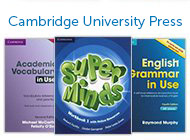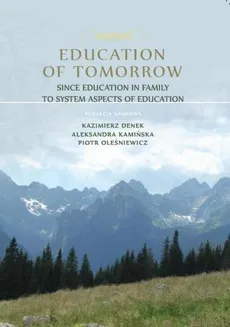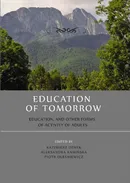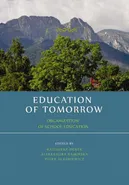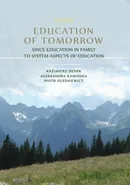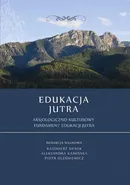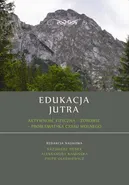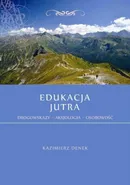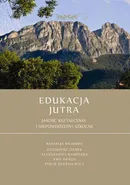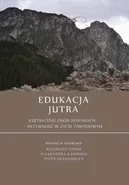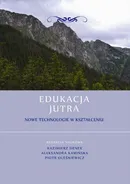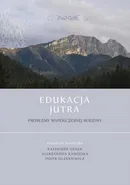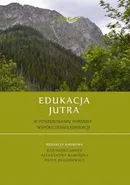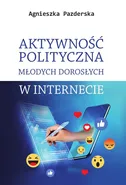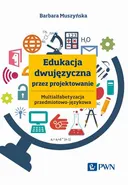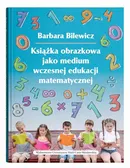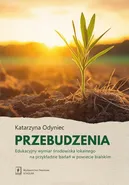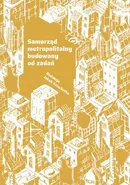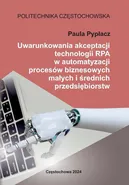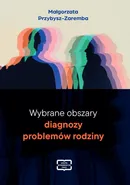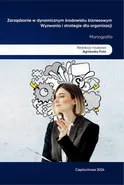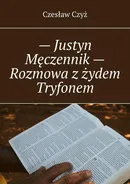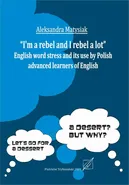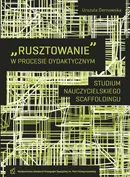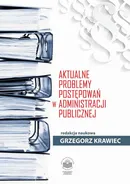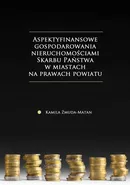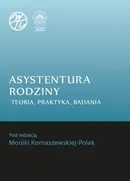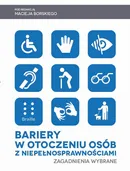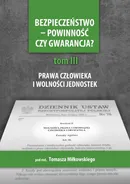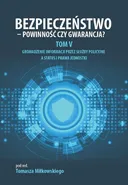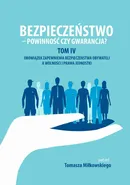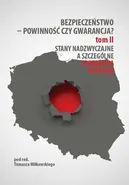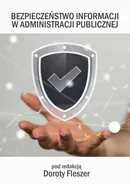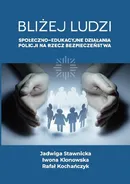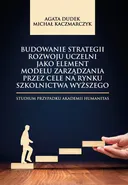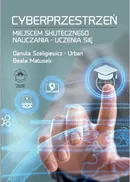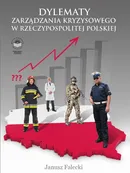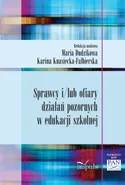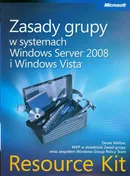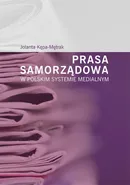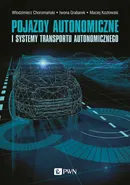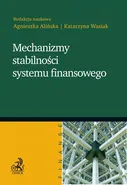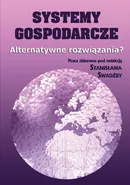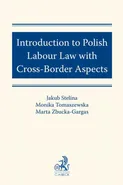Education of Tomorrow. Since education in family to system aspects of education - Mykola Zymomrya, Oleksandra Nimylovych, Władysław Grzeszczuk, Lesia Shahala: The contribution of spiritual figures to the development of the pedagogical thought of Halychyna
Contemporary post-modren family as the "family of risk" The contemporary family is a post-modern one. Unfortunately, it is frequently a dysfunctional family which fulfils its basic roles (bio-psychical, economic, socio-determining, socio-psychological) with great difficulty or in a “distorted” way. Such a family, called by D. Elkind the “permeable” family,lacks clarity and stability as to the number and “quality” of parents, the formal type of their relationship, as well as the division of e.g. economic or socio-psychological functions. The modern family is a family implicating differences in the quality of child¬hood. On one hand, modern families are sometimes affected with unemploy¬ment, often connected with social and economic poverty, which in turn frequently involves deviant or pathological behavior (e.g. alcohol abuse). Children from such families tend to be “low quality” children (homeless children, poor children, children of the streets). On the other hand, the modern family is characterized by permanent time shortage; overworked family members are oriented towards success, career, self-realization. In success-minded families children are also brought up to achieve success; they are under pressure to “win” and are put on the path of excessive ambition. “It is such parents who pack their children’s timetables with ballet and fencing classes, football and Spanish, regardless of whether the child actually likes it all or not, because it looks good in the CV which is to secure them a place in the best schools and a job in the best corporations.” Children from such families are called the “high quality” children or “consumer children” who function according to their parents’ plan. They are often provided excessively with materialistic values that sometimes distort their lifestyles. The modern family is also more and more plagued with divorce, conflict, Euro-orphanhood. It is characterized by the constant necessity to adapt to changing con¬ditions and to undertake new, often burdening and stressful tasks and duties. As a result, the modern family is predominantly threatened by: • relationship crisis evoking the category of “de-anchoring process”, i.e. the breakdown of emotional bonds between parents and children and the remaining family members; • family disintegration resulting from divorce, conflict, or economic migration of one parent or both parents and their living abroad; • child neglect stemming from various reasons (poverty, unemployment, parents’ job-related mobility); • loneliness of children (caused by parents’ divorce, Euro-orphanhood, poverty, parents’ preoccupation with professional careers in well-off families); • pathologies of family life (alcohol abuse, drug abuse, etc.); • eroding the authority of parents, sense of being lost, confusion of both children and adults in relation to the system of values; • depriving children of their natural need of security and the resulting distortions in shaping their personalities. In the contemporary post-modern family, especially the one that functions in the hectic rhythm of everyday modern life, self-reliance is often imposed on children; “children are treated as competent in coping with life challenges, as not needing support.” The picture of the modern family sketched above, giving rise to many unsettling reflections, should be complemented with the characteristics of “supermodern child” in a modern society as given by the German sociologist U. Beck. These are: • the necessity for the child to adjust to a new form of family life, without one parent or both parents; • the child’s considerable self-reliance – his or her reflectiveness through partici¬pation in domestic duties; • the child’s ability to co-ordinate – independently of the parents – various types of activity, arrange timetables for his or her leisure time and find his/her own time rhythm separate from the family rhythm; • development of own spectrum of activities by the child, especially during parents’ absence; • life on “island (island areas)” and arranging own complex social relations by the child (friendship or group relations); • increasing independence in shaping the child’s own biography (course of education, course of life), developing and integrating one’s life history in a reflexive manner; • lack of choice of e.g. the child’s family situation; this necessitates the development of self-agency adequate for the situation; • aspiration to meet the expectations of adults. This considerable self-reliance accentuated in the above-presented features of the “supermodern child” has got its advantages but also involves certain threats, such as degeneration of family bonds, loss of traditional authorities, the child’s loneli¬ness, confusion in the criteria used for determining values and in the rules of social intercourse, non-fulfilment of the child’s needs connected with health, psychology and intellectual development, sometimes also material needs. The blocking of such needs also happens for the previously mentioned reasons, such as parents’ unemployment, poverty, divorce, prolonged absence from home due to professional mobility, or loosening of family bonds in both wealthy and poor families. Deprivation of the above-mentioned needs brings in the states of frustration and stress, whose consequence is the occurrence of strong emotions in children: fear, anxiety, anger, and also physiological changes, somatic distress, troubles with concentration, apathy or aggression, most often displayed towards peers. It should also be mentioned that aggressiveness and initiating interpersonal conflicts by children may be a symptom of their abuse in the family. There is a proven connection between the phenomenon of child abuse and the functioning of a family in certain social conditions. Unfortunately, post-modern reality often “opens the door wide” to physical and psychical harm and neglect and other forms of violence towards children. The generally recognized perspective of understanding child abuse in the family indicates that such phenomena and social problems as unemployment, poverty, difficult socio-economic conditions, early parenthood, problems with addictions, excessive expectations weaken the quality of parenting and increase life stress considered to be the primary risk factor for the child abuse problem in the family. In the context of the outlined characteristic of the post-modern family it seems right to call it – after S. Kawula, J. Brągiel and A. Janke – the “family of risk” or “dangerous family.” Realizing the difficulties that the modern family must cope with we should ask ourselves the question what should be done to transform it into the “vital family,” i.e. the one fulfilling the needs of all its members, activat¬ing their abilities and offering chances of self-realization. Małgorzata Cywińska
- Kategorie:
- Redakcja: Aleksandra Kamińska, Kazimierz Denek, Piotr Oleśniewicz
- Język wydania: angielski
- ISBN: 978-83-61991-95-3
- ISBN druku: 978-83-61991-95-3
-
Sposób dostarczenia produktu elektronicznegoProdukty elektroniczne takie jak Ebooki czy Audiobooki są udostępniane online po opłaceniu zamówienia kartą lub przelewem na stronie Twoje konto > Biblioteka.Pliki można pobrać zazwyczaj w ciągu kilku-kilkunastu minut po uzyskaniu poprawnej autoryzacji płatności, choć w przypadku niektórych publikacji elektronicznych czas oczekiwania może być nieco dłuższy.Sprzedaż terytorialna towarów elektronicznych jest regulowana wyłącznie ograniczeniami terytorialnymi licencji konkretnych produktów.
-
Ważne informacje techniczneMinimalne wymagania sprzętowe:procesor: architektura x86 1GHz lub odpowiedniki w pozostałych architekturachPamięć operacyjna: 512MBMonitor i karta graficzna: zgodny ze standardem XGA, minimalna rozdzielczość 1024x768 16bitDysk twardy: dowolny obsługujący system operacyjny z minimalnie 100MB wolnego miejscaMysz lub inny manipulator + klawiaturaKarta sieciowa/modem: umożliwiająca dostęp do sieci Internet z prędkością 512kb/sMinimalne wymagania oprogramowania:System Operacyjny: System MS Windows 95 i wyżej, Linux z X.ORG, MacOS 9 lub wyżej, najnowsze systemy mobilne: Android, iPhone, SymbianOS, Windows MobilePrzeglądarka internetowa: Internet Explorer 7 lub wyżej, Opera 9 i wyżej, FireFox 2 i wyżej, Chrome 1.0 i wyżej, Safari 5Przeglądarka z obsługą ciasteczek i włączoną obsługą JavaScriptZalecany plugin Flash Player w wersji 10.0 lub wyżej.Informacja o formatach plików:
- PDF - format polecany do czytania na laptopach oraz komputerach stacjonarnych.
- EPUB - format pliku, który umożliwia czytanie książek elektronicznych na urządzeniach z mniejszymi ekranami (np. e-czytnik lub smartfon), dając możliwość dopasowania tekstu do wielkości urządzenia i preferencji użytkownika.
- MOBI - format zapisu firmy Mobipocket, który można pobrać na dowolne urządzenie elektroniczne (np.e-czytnik Kindle) z zainstalowanym programem (np. MobiPocket Reader) pozwalającym czytać pliki MOBI.
- Audiobooki w formacie MP3 - format pliku, przeznaczony do odsłuchu nagrań audio.
Rodzaje zabezpieczeń plików:- Watermark - (znak wodny) to zaszyfrowana informacja o użytkowniku, który zakupił produkt. Dzięki temu łatwo jest zidentyfikować użytkownika, który rozpowszechnił produkt w sposób niezgodny z prawem. Ten rodzaj zabezpieczenia jest zdecydowanie bardziej przyjazny dla użytkownika, ponieważ aby otworzyć książkę zabezpieczoną Watermarkiem nie jest potrzebne konto Adobe ID oraz autoryzacja urządzenia.
- Brak zabezpieczenia - część oferowanych w naszym sklepie plików nie posiada zabezpieczeń. Zazwyczaj tego typu pliki można pobierać ograniczoną ilość razy, określaną przez dostawcę publikacji elektronicznych. W przypadku zbyt dużej ilości pobrań plików na stronie WWW pojawia się stosowny komunikat.
Preface Małgorzata Cywińska Contemporary post-modern family as the “family of risk” 19 Part I. Task of family in education of children and youth Krystyna Duraj-Nowakowa The area of pedagogical activity in holistic optic 25 Joanna Lorenc, Monika Miczka-Pajestka Personality-based view on upbringing. Areas of humanism 35 Iwona Samborska Individual and social determinants of valuing in the world of a child 47 Anna Kowal-Orczykowska “Dadhood” – that is, the image of the modern father. Between biology and culture 57 Teresa Parczewska Family home (not) a place of dwelling. An adult’s perspective 69 Danuta Szeligiewicz-Urban Application of the Family Group Conference Method working with disabled and their families 79 Part II. Education and its dangers in school of tomorrow Małgorzata Cywińska Creative verbal activity of children 93 Karolina Kaliszewska, Teresa Żółkowska Education for diversity 107 Zenon Jasiński Teachers’ attitudes toward the “Others” and intercultural education 121 Barbara Grzyb Common area of the integrative school as perceived by fully-abled and disabled students 137 Dorota Domińska-Werbel Temperament as a determinant for strategy of coping with difficulty conflict situation among junior high school students 151 Izabela Plieth-Kalinowska Aggression towards disabled children and youth in their peer environment 163 Part III. Didactic aspects of education of tomorrow Urszula Ordon Teacher in the face of educational tasks at pre-school and school 181 Aleksandra Kamińska The ways of obtain information from the internet sources by the young people 191 Mariusz Przybyła, Sylwia Polcyn Educational context of contemporary computer games 203 Dorota Ciechanowska Student responsibility in deep learning 215 Wojciech Wiesner, Bogusław Ogrodnik Role of models in swimming education 227 Part IV. Healthy preventive in education of tomorrow Mariola Wojciechowska, Monika Szpringer, Justyna Kosecka Health and physical activity awareness of young people – selected aspects 245 Piotr Oleśniewicz, Mariusz Sołtysik Legal, organizational, and economic aspects of school tourism in Poland. Current trends and solutions 257 Jana Juříková, Robin Havelka Nutrition education and habits of pregnant women who attend antenatal clinics in Brno, Czech Republic 267 Monika Szpringer, Mariola Wojciechowska, Justyna Kosecka, Ewa Barańska Knowledge of eating disorders related to bulimia among secondary school learners in Poland 279 Part V. University as educational institution Małgorzata Kabat University as an educational environment of teachers 295 Anna Dudak Pedagogical studies seen in high school graduates opinions 307 Ihor Dobryansky, Vadim Ryzhykov Systems approach as a methodology of training modern specialists of the qualification of “master” 317 Ewa Kochanowska Selected problems in verification of the effects of education of candidates for teachers in terms of social competence 329 Katarzyna Czepiel Innovations in teaching practice program. The accomplishment of “Through practice towards career – the program of teaching practice in Humanitas University’s project” 341 Part VI. Institutional aspects of education Ihor Dobryansky, Iwan Zymomrya, Lesia Shahala, Rusłana Żowtani Consensus between the interests of a person, society and the state as a pledge of success in modernizing the national system of education 355 Marzanna Pogorzelska When the discrimination knocks at the school door. The response of educational institutions to the situation of the local conflict 367 Varia Mykola Zymomrya, Oleksandra Nimylovych, Władysław Grzeszczuk, Lesia Shahala The contribution of spiritual figures to the development of the pedagogical thought of Halychyna in the 19th – beginning of the 20th centuries 381 Olha A. Kvasnitska Methodologically oriented reform and improvement of the legal regulation of construction activity in Ukraine 395




